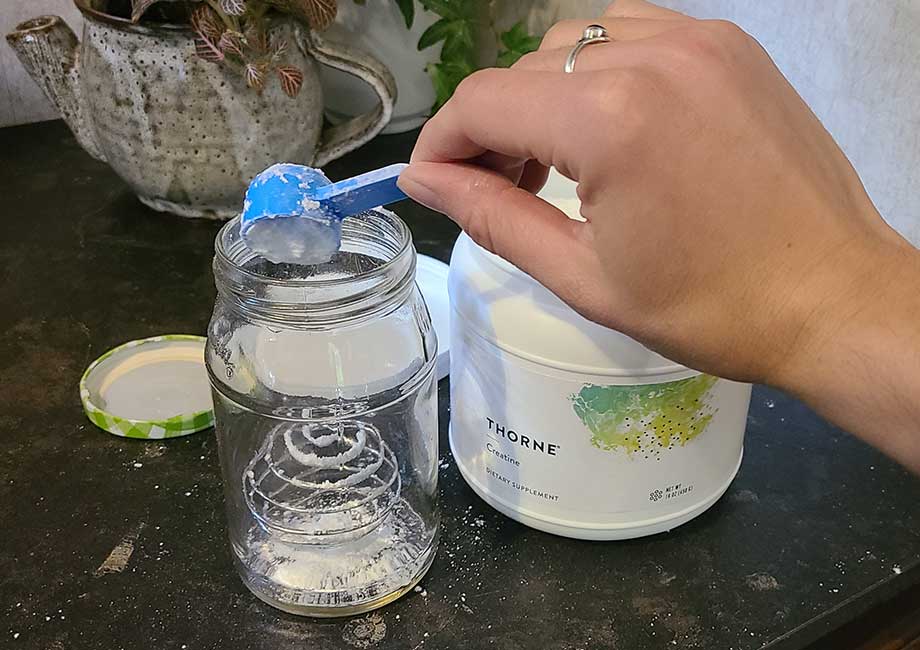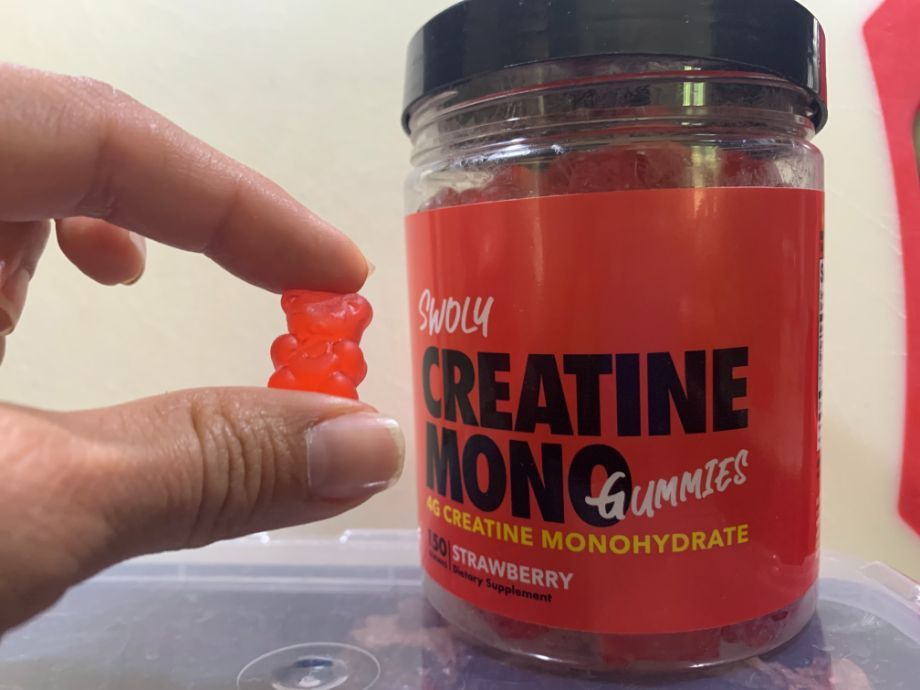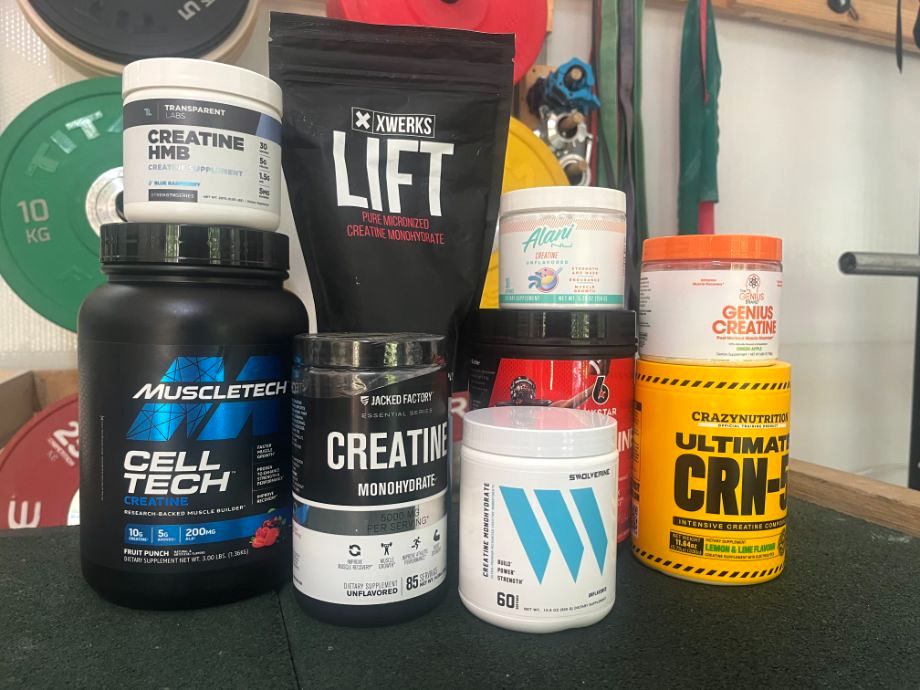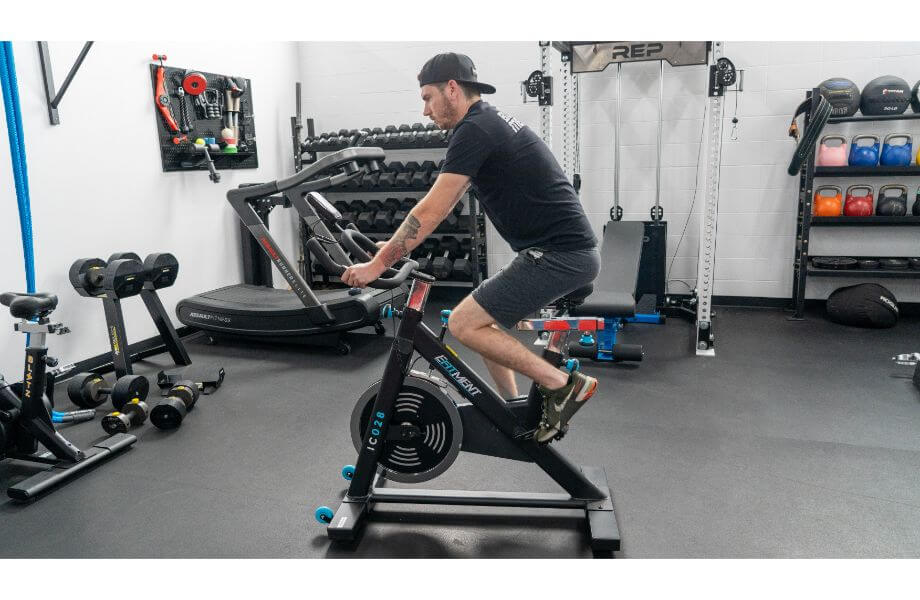Contrary to popular belief, creatine isn’t just for bodybuilders; it can be a helpful supplement for a variety of physically active people. Whether your goal is to build muscle, lift heavier, recover faster, or perform better at sports, taking the most effective form of creatine is key for helping you get there.
So what are the different types of creatine supplements, and does the type matter? I’ll explore the available options and help you choose the most effective one so you can get the most for your money.
RELATED: Best Creatine Supplements
Medical disclaimer: This article is intended for educational and informational purposes only. It is not intended as a substitute for medical advice. For health advice, contact a licensed healthcare provider.
Creatine Monohydrate
Creatine monohydrate is by far the most well-studied form of creatine, made up of one creatine molecule and one water molecule. It has consistently been shown to be effective for improving exercise performance and muscle growth across numerous scientific studies, according to a September 2022 systematic review in the Journal of Strength and Conditioning Research1.

Creatine monohydrate is also the most affordable form of creatine. Talk about a win-win!
Creatine Hydrochloride (HCl)
Creatine HCl is a combination of creatine and hydrochloride molecules. Hydrochloride makes the supplement more water-soluble, which makes it more easily absorbed than creatine monohydrate.
This may make it a better choice for people who experience gastrointestinal symptoms when taking creatine monohydrate, but it doesn’t necessarily mean that it’s more effective for improving performance. Creatine HCl hasn’t been studied nearly as well as creatine monohydrate for these exercise-related benefits.
Creatine Ethyl Ester
It’s been claimed that creatine ethyl ester is more bioavailable than creatine monohydrate, and therefore more easily absorbed and used by the body.
However, only one study has tested the effectiveness of creatine ethyl ester for improving performance and body composition. Published in 2009 in the Journal of the International Society of Sports Nutrition2, this small study found that creatine ethyl ester wasn’t as effective as creatine monohydrate in improving creatine stores or muscle mass.
Creatine Magnesium Chelate
Creatine magnesium chelate is simply creatine that is chemically attached to the mineral magnesium. It may be equally as effective as creatine monohydrate, but there hasn’t been enough research to say for certain.
Currently, there’s no evidence to suggest that it’s more effective in any way than creatine monohydrate.1
Creatine Phosphate
About two-thirds of the creatine found in skeletal muscle is stored as creatine phosphate, so you might think that it would be the most effective.
However, research on the effectiveness of creatine phosphate is limited. According to one small 1999 study3, it might be as effective as creatine monohydrate for improving strength and muscle mass, but creatine monohydrate is widely considered the preferred choice.
Kre-Alkalyn
Kre-Alkalyn is a buffered form of creatine in which the pH of the supplement has been altered to be less acidic. This is done by combining naturally acidic creatine with an alkaline (basic) powder.
It’s claimed that Kre-Alkalyn is more stable and effective than creatine monohydrate at lower doses while also reducing negative side effects, but the results of a September 2012 study in the Journal of the International Society of Sports Nutrition4 don’t support these claims. People taking creatine monohydrate had higher muscle creatine stores than those taking buffered creatine and there weren’t any differences in muscle mass, strength, power, or side effects.
Creatine Nitrate
Creatine nitrate may help increase muscle mass. Interestingly, it performed slightly better than creatine monohydrate in a March 2016 study5 for bench press peak power and sprint performance, but wasn’t considered by the authors to be more effective for exercise performance.
Creatine Malate
Creatine malate has been shown to improve distance in endurance runners and relative peak power and lean body mass in sprinters, but it hasn’t been tested directly against creatine monohydrate to see which is more effective.
Creatine Pyruvate
Overall, research on the effectiveness of creatine pyruvate is mixed and sometimes conflicting. Like creatine malate, it also hasn’t been directly compared against creatine monohydrate so claims about its superiority should be taken with a grain of salt.
Creatine Citrate
Create citrate has been studied in more detail than many of the other types of creatine, but findings on its effectiveness for athletic performance and lean muscle are inconclusive. In multiple studies, it wasn’t even more effective than taking a placebo.
Overall, creatine monohydrate is the most well-researched form of creatine and no other type has been shown to outperform it.
What is Creatine?
Creatine is a natural organic acid produced by the human body that is sold as a dietary supplement and ergogenic aid. It can also be obtained through food, with the best sources being red meat, poultry, seafood, eggs, and milk. Creatine is synthesized in the liver, kidneys, and pancreas from three amino acids: glycine, arginine, and methionine.
About 95% of the creatine in your body is stored in the muscle6, mainly as phosphocreatine, with another 5% distributed in the brain and testes.
Creatine supplements typically come in powdered form as micronized creatine, meaning it’s in very tiny particles that help it dissolve in liquid. You can also buy creatine capsules, liquid creatine, or even creatine gummies.

Creatine Benefits and Side Effects
So how exactly does creatine help during training? Let’s discuss how it works in more detail, as well as its potential side effects.
Benefits of Creatine
Creatine benefits center around muscle growth and performance. Consistent creatine supplementation increases the amount of creatine available in the muscles, making it readily available to be used during exercise.
As a supplement, creatine is most effective for improving performance in short, high-intensity, anaerobic exercises like weightlifting or sprinting. To perform these types of exercises, the body requires energy in the form of adenosine triphosphate (ATP). Creatine is stored in skeletal muscle as creatine phosphate, which helps the body regenerate ATP molecules quicker.
Practically, this translates to the ability to lift a few extra reps during a resistance training session, slightly faster sprint times, or better performance of multiple sprints. These benefits can lead to small increases in the amount of effort you can put in during each training session, potentially translating to improved exercise performance and muscle mass over time.
This means that creatine itself won’t automatically make you more muscular; any benefits will come from the ability to put in more work in the gym.
According to the International Society of Sports Nutrition6, creatine supplementation provides the following benefits for exercise performance:
- Increased muscle mass
- Increased muscle strength
- Increased repetitions during maximal effort sets
- Improved sprint performance
- Improved ability to store carbohydrates for energy as muscle glycogen
- Faster recovery after exercise
RELATED: Does Creatine Help You Lose Weight?
Side Effects
Many dietary supplements come with the risk of unpleasant side effects. Anecdotally, creatine supplementation has been linked to uncomfortable digestive symptoms like stomach cramping, bloating, and diarrhea, and concerns about other side effects like hair loss and dehydration are common.
These symptoms are pretty rare, however, and likely aren’t truly related to creatine. Research7 has shown that creatine supplements don’t cause dehydration, hair loss, increased body fat, or muscle cramping. It’s also safe for kidney function in healthy people when taken at recommended doses.
The International Society for Sports Nutrition has concluded that the only consistently reported side effect of creatine is weight gain, which isn’t surprising when you consider that creatine often leads to water retention in the muscle.6
That said, the risk of digestive upset increases when dry-scooping creatine or a pre-workout that contains creatine. Dry scooping is a popular trend that should be avoided. Proper digestion requires water, so water gets pulled into the intestines to help digest creatine when it isn’t consumed with a liquid. This makes it more likely that you’ll experience bloating or other digestive symptoms.
RELATED: How Much Water Should You Drink With Creatine?
Does Creatine Work?
Creatine has many benefits for exercise, but is most effective when taken according to recommended supplementation guidelines.
First, creatine can be taken as part of a short-term loading phase in order to fully saturate the muscle cells with creatine. While not a necessity to see results, the loading phase can help accelerate the potential benefits of creatine. The loading phase involves taking 5 grams of creatine four or five times throughout the day for five to seven days, for a daily total of 20 to 25 grams.
Creatine loading phase is followed by a maintenance phase, during which the goal is to maintain full creatine saturation of the muscle over a longer period of time. Maintenance doses are lower, at 3-5 grams per day for most people.
While creatine is widely considered effective, not everyone responds to it the same way. People with lower baseline creatine muscle stores, such as vegetarians and vegans, may experience a relatively larger benefit from creatine supplementation than people with higher creatine levels.
RELATED: Best Creatine for Women (2025)
Types of Creatine: Final Thoughts
Creatine is a popular, effective dietary supplement for improving various measures of athletic performance, strength, and muscle size. Creatine monohydrate supplementation is by far the most well-researched with the most evidence supporting its effectiveness. To date, no other type of creatine has been shown to be more effective.
Types of Creatine: Q&A
Is creatine HCl or monohydrate better?
Creatine HCl may be easier to digest and lead to fewer digestive symptoms, but it hasn’t been studied as well as creatine monohydrate for its ability to improve performance in the gym or increase muscle mass. Overall, creatine monohydrate is the more proven form of creatine.
What are the two types of creatine?
There are many different forms of creatine, but two of the most popular are creatine monohydrate and creatine hydrochloride (HCl). Creatine HCl doesn’t have as much research supporting its effectiveness as creatine monohydrate does.
What is the difference between creatine types?
The differences between the various forms of creatine are small changes in their chemical makeup. These differences can affect how quickly the supplement is absorbed and stored in muscle, although they may not translate to much benefit over other forms.
For example, despite creatine monohydrate being absorbed more slowly than other types, none of them have been shown to be more effective for improving sports performance, muscle size, or strength.
Does it matter what type of creatine you take?
To get the most value for your money, you want to choose a supplement that has consistently been proven effective. Of all the different types of creatine, creatine monohydrate has the most scientific evidence backing up its benefits. As of right now, we can’t say for certain whether other forms are equally as effective.







